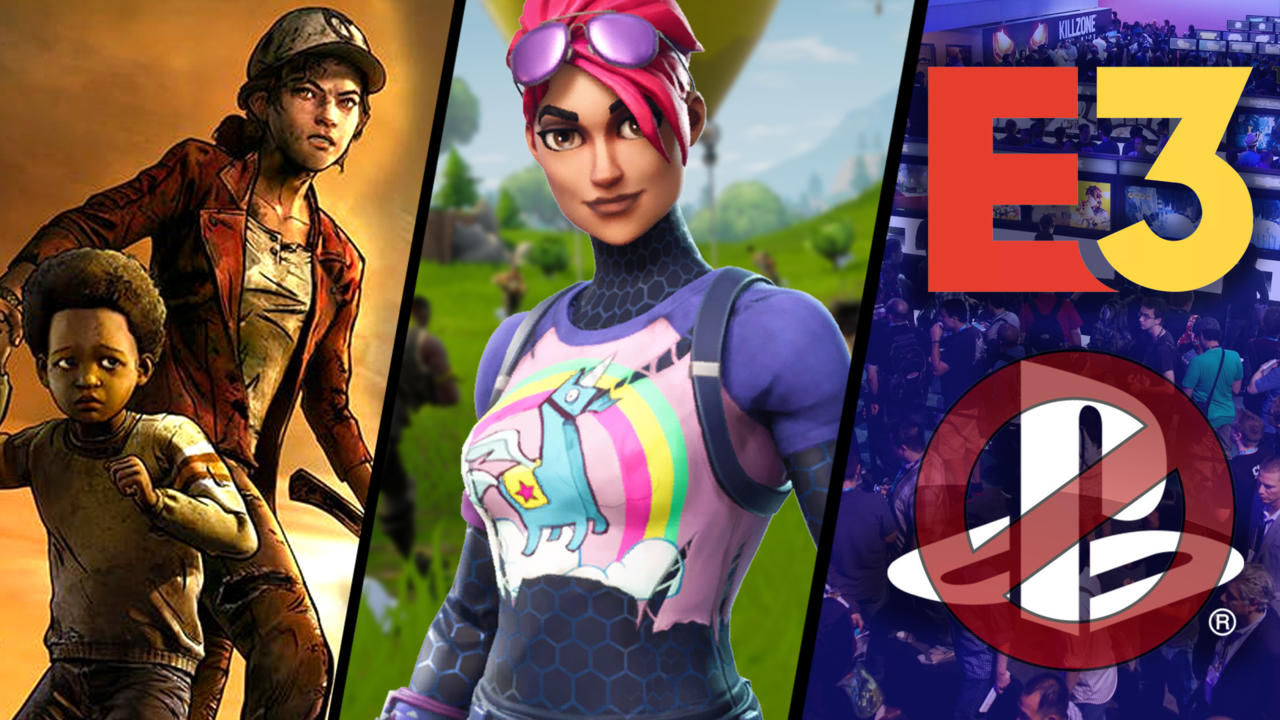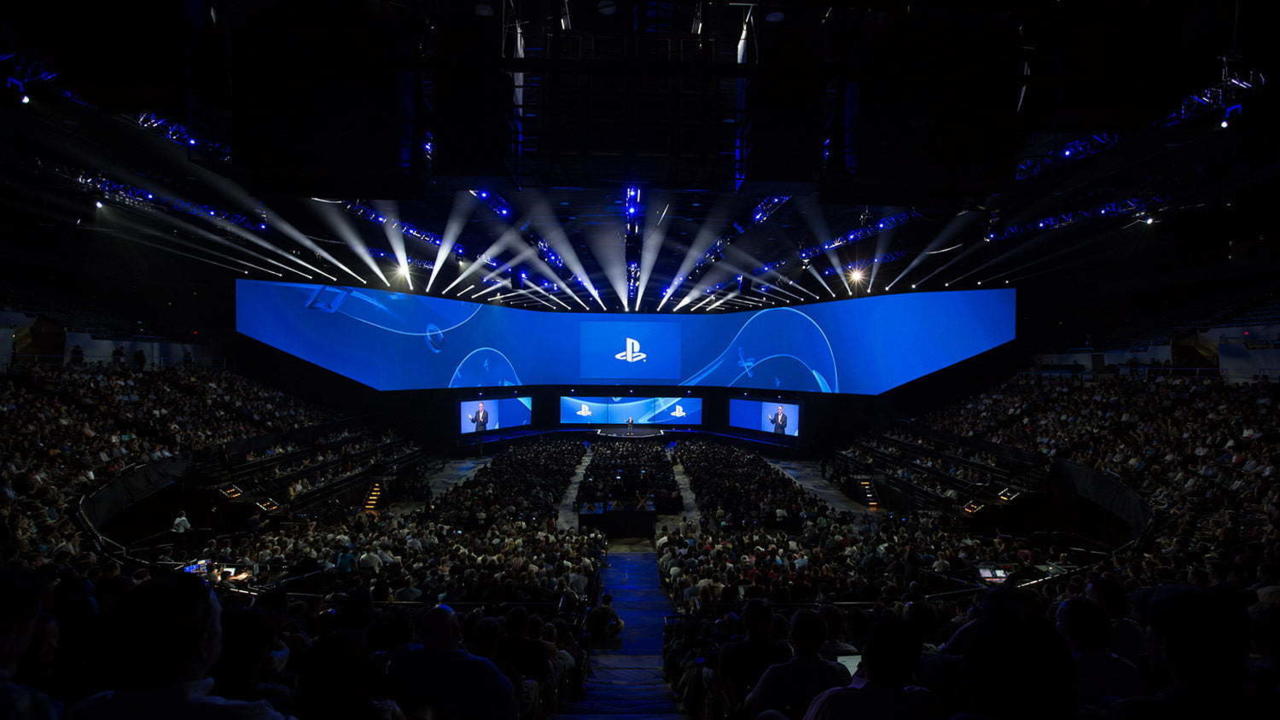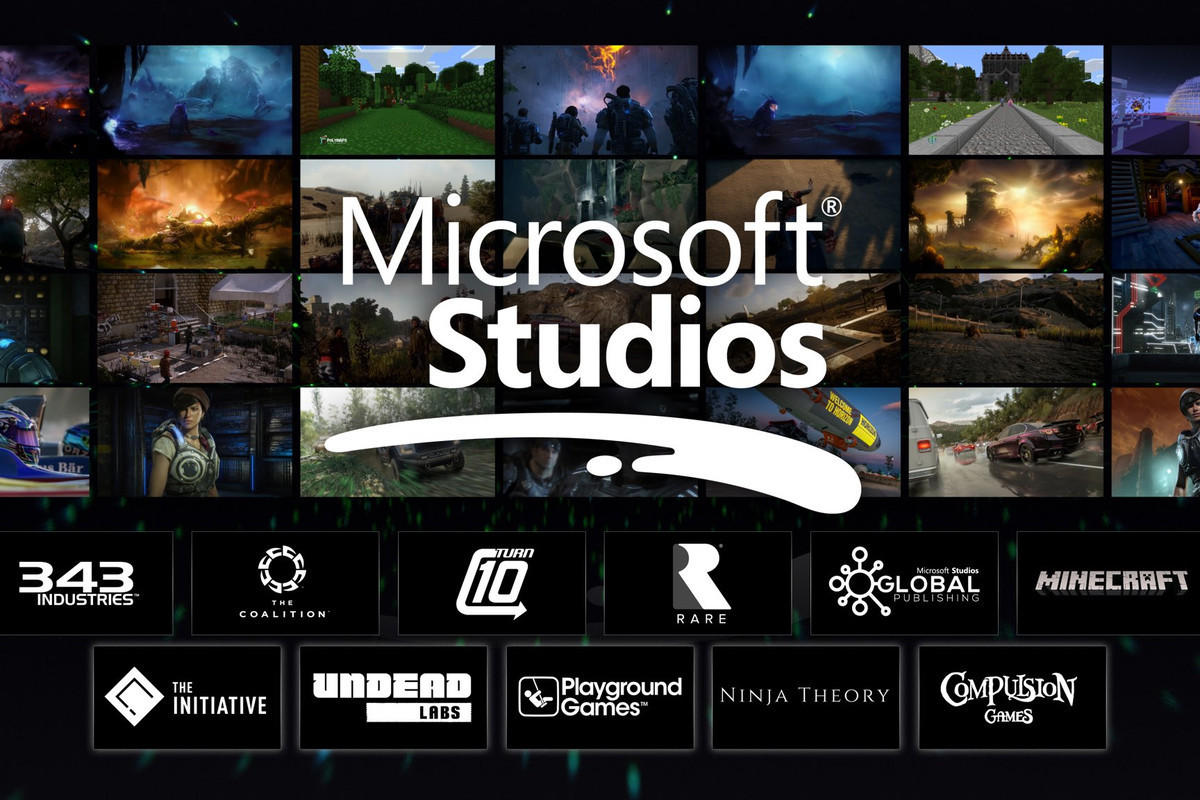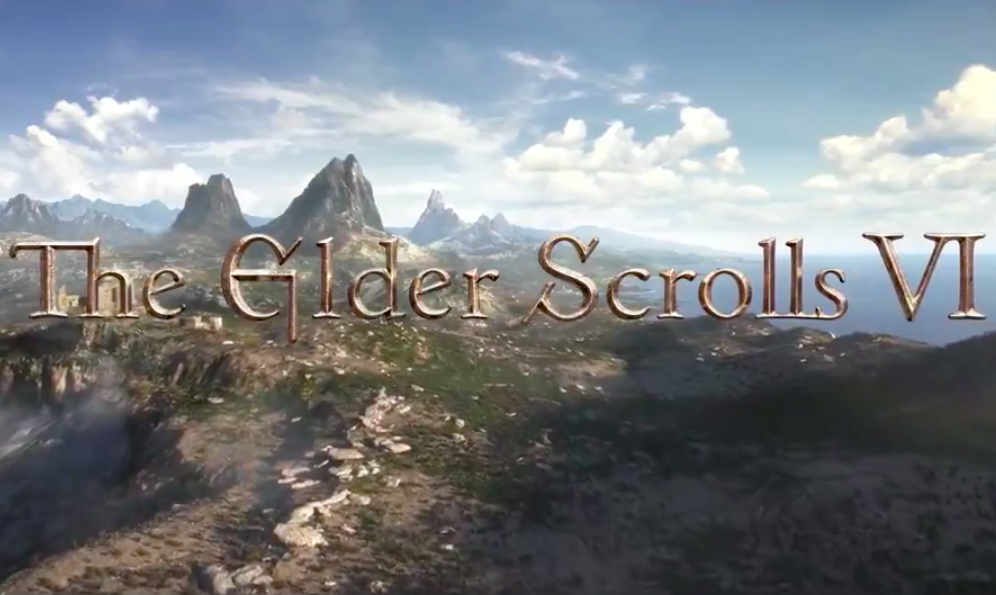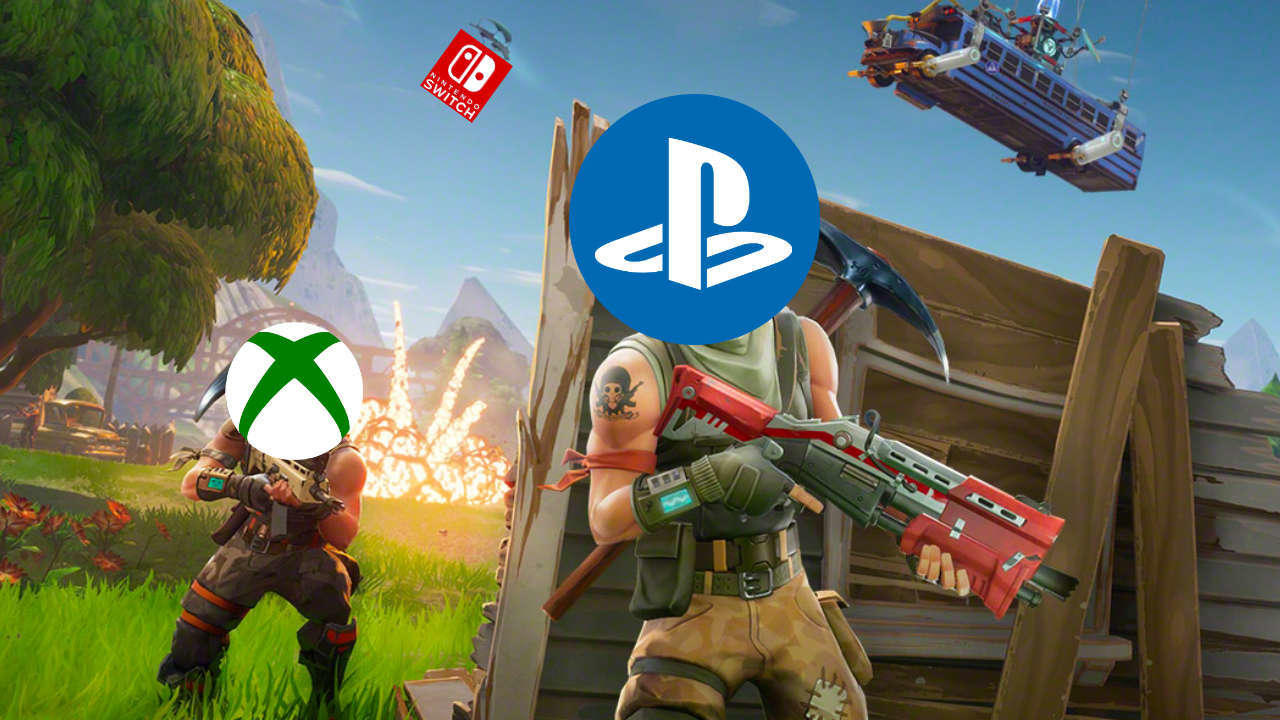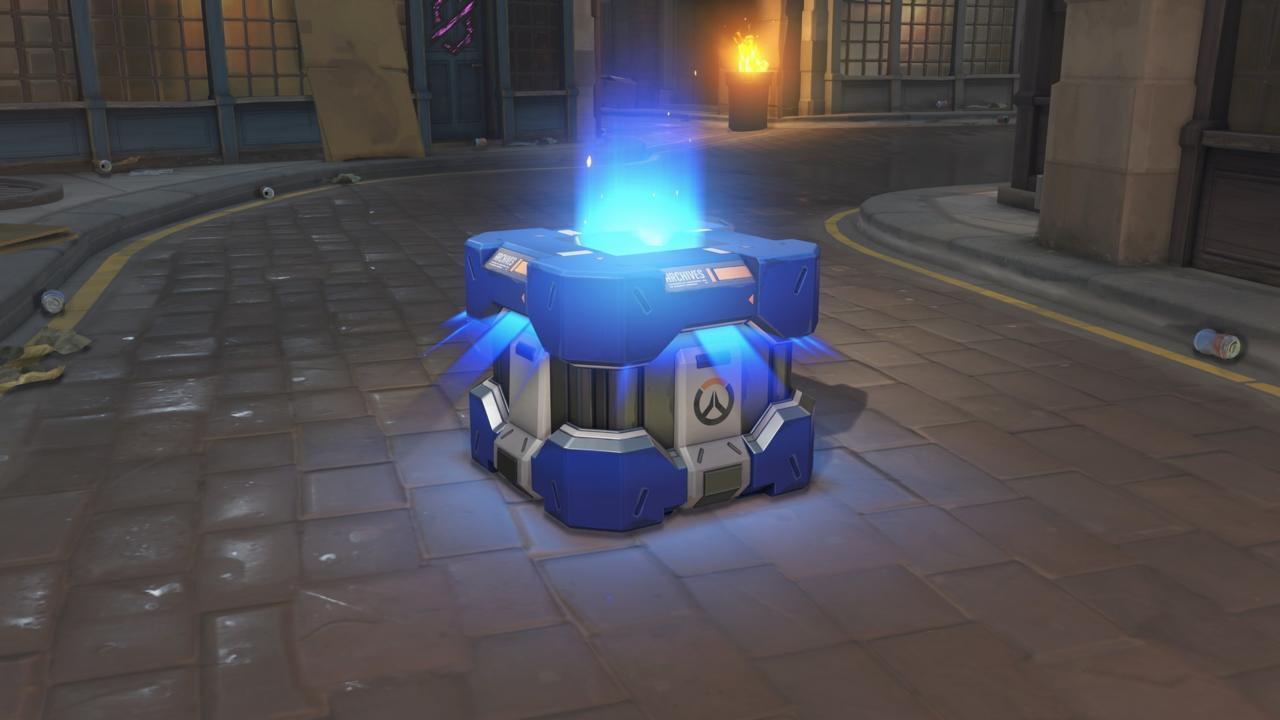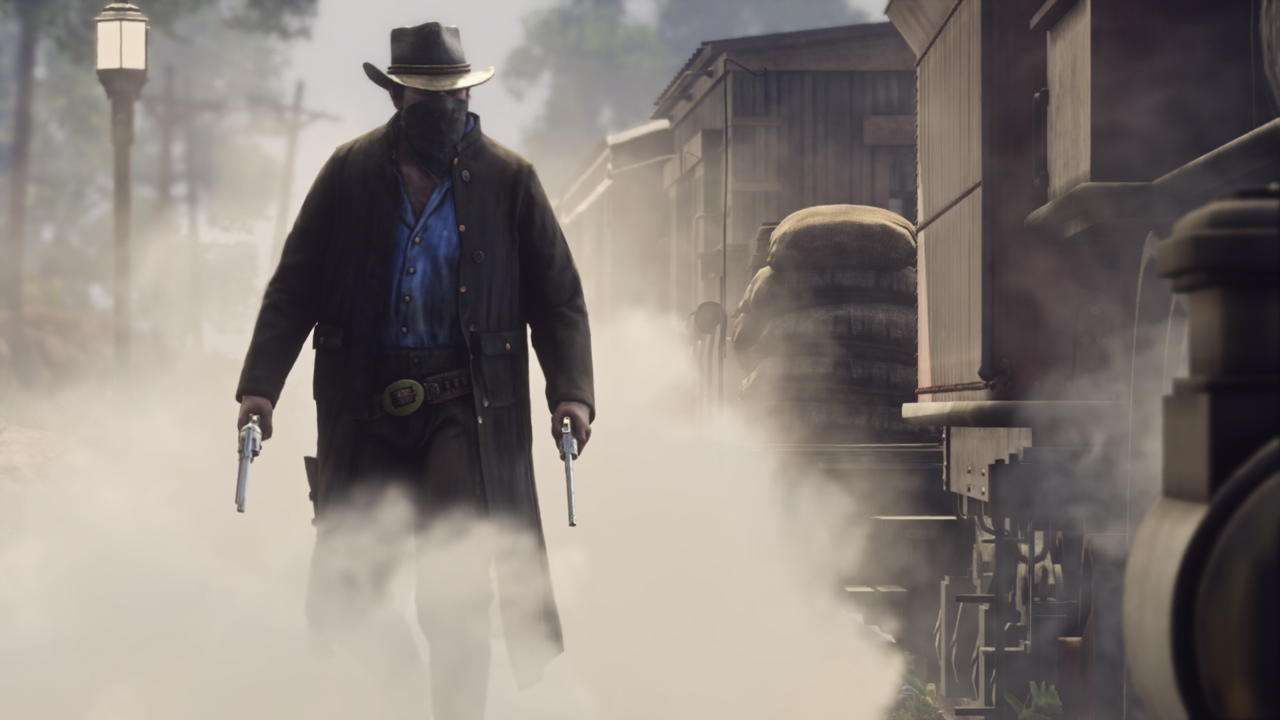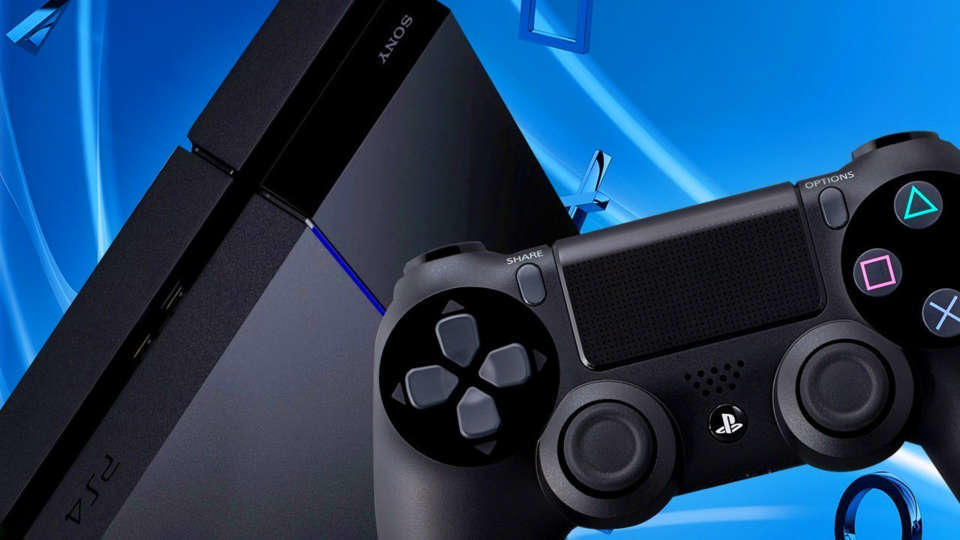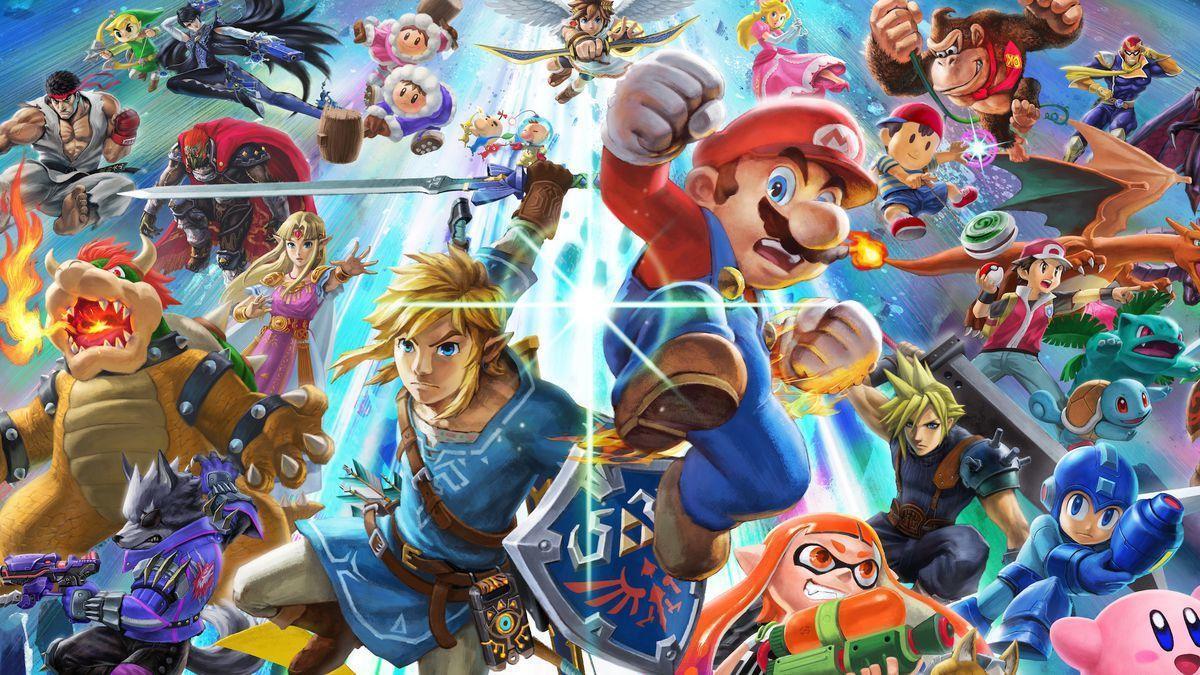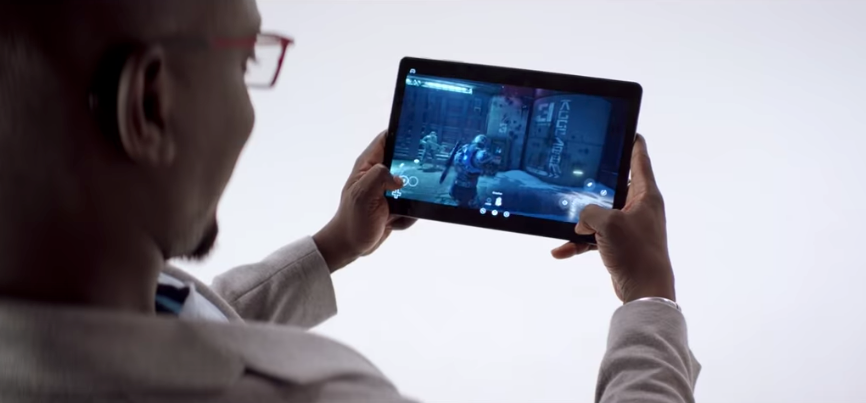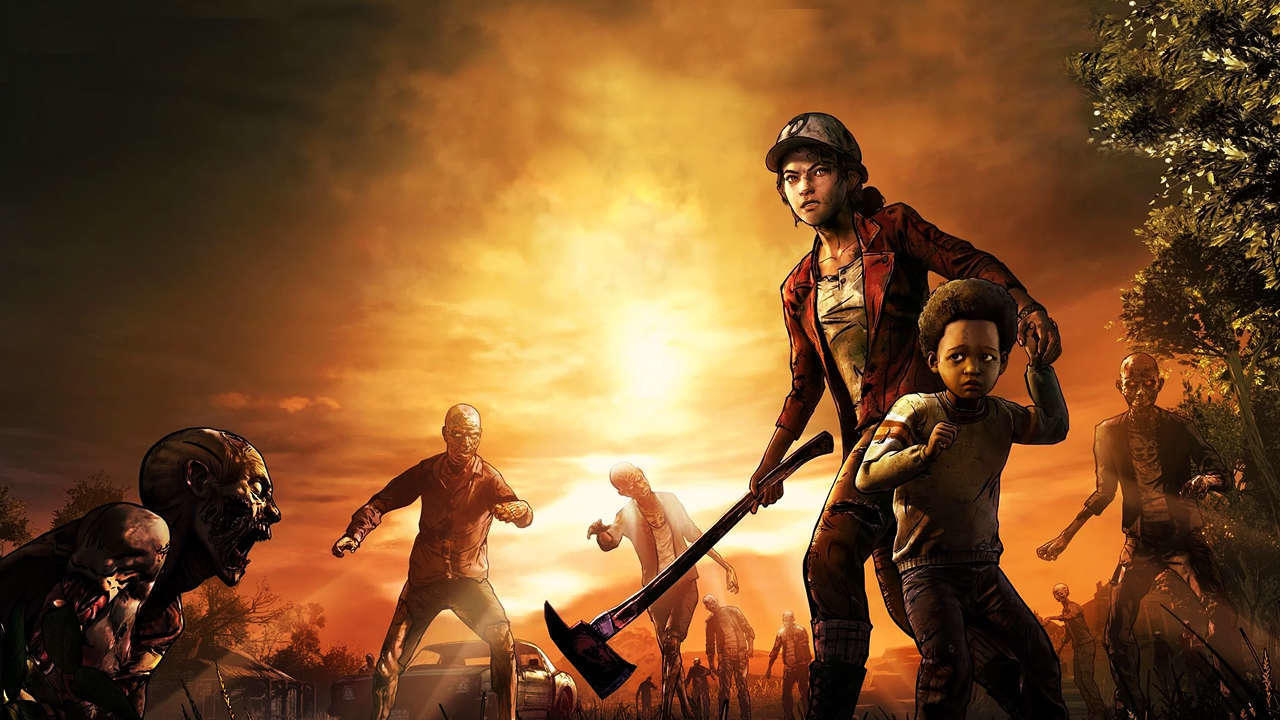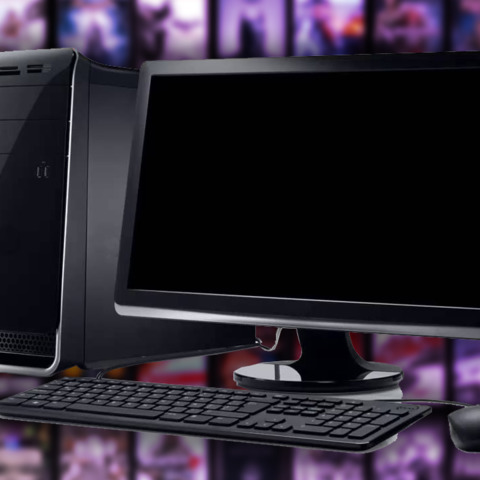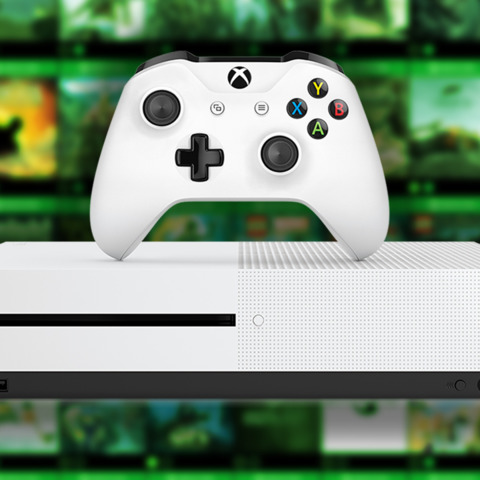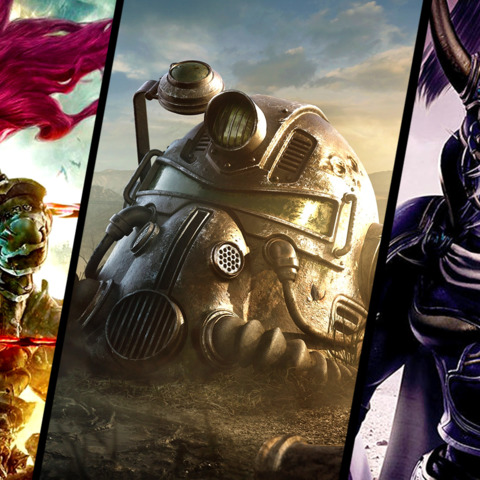The Biggest News Stories Of 2018
GameSpot may receive revenue from affiliate and advertising partnerships for sharing this content and from purchases through links.
The Biggest News of 2018
2018 is almost over. The year has been bursting with big news in the video game industry. There was continued drama over microtransactions, big game announcements and breakout successes like Fortnite, and changes coming to future events.
In this gallery, we're taking a look at a selection of the biggest news of the year. Sometimes the biggest stories developed throughout the year, or took long pauses between developments. We've categorized the news by the big events themselves, as sometimes stories become clearer when we take a step back and view it all at once. Whether you may have missed out on some stories or just want to take a trip down memory lane, these are the stories that defined the year.
We have much more to come in our Best of 2018 content over the next few days and weeks. We'll be outlining our console report cards, best-of lists, and Game of the Year countdown. You can follow along with our 2018 Game of the Year schedule for all the details.
Best Games of 2018 |
PlayStation Pulls Out Of E3 2019
E3 has been slowly shifting to a more consumer-focused show for years, but this year we may have gotten the biggest indication yet that the annual video game trade show is in the middle of a seismic shift. Sony, one of only three major platform-holders and one of the single largest presences on the show floor, announced it will not be attending E3 2019.
This marks the first time Sony will skip E3 since it began attending in the mid-90s, but it's far from the only company to change its E3 plans in recent years. Nintendo has opted out of a flashy press conference in favor of a prepared Nintendo Direct video and Treehouse interviews from the show floor. In 2018, Microsoft shifted its presence off-site and gave its floor space to its Mixer streaming service. Activision and EA have both pulled back in recent years as well.
Sony's break was more complete, as its statement confirmed that it will not be participating in the show at all. That could mean it opts not to hold a press conference at all. Whatever E3 becomes over the next few years, Sony's decision this year will doubtlessly be a major turning point.
Microsoft Goes On An Acquisition Spree
Following some heated criticism over a lack of first-party games, Microsoft seems to have taken the concerns to heart. At both E3 and its own X018 event, the company announced several studio acquisitions, all aimed at creating new, original games for Xbox.
First at E3, Microsoft announced five studios. It acquired Undead Labs, Playground Games, Compulsion Games, and Ninja Theory. It also created a new studio, called The Initiative, headed up by Tomb Raider director Darrell Gallagher. At X018, the company added two more studios: InXile, and Obsidian. Those seven studios more than doubled the company's full suite of developers, for a grand total of 13.
It's difficult to say what these new studios are working on at this point. With this generation appearing close to its end, they could be the tip of the spear for the next generation of Xbox consoles, which Xbox boss Phil Spencer has already begun talking about. Whatever their projects may be, it looks like the console will be getting a lot more variety.
Fortnite Is Massive
No single game occupied the minds and time of gamers this year quite like Fortnite. Epic took its long-delayed multiplayer survival game and added a free battle royale mode last year, but its popularity exploded this year. The studio subsequently rode that success far beyond the original plans ever took it.
The game has infected pop culture, from in-game celebrity appearances to NFL end-zone celebrations. It helped raise cumulative video game sales and had an incidental impact on big publishers like Activision. It's made the studio founders rich. In a sign of sure success, it reached the mainstream media with concerns about game addiction and school disruption.
To its end, Epic has smartly kept the attention going with ever-changing seasonal events that drop clues for the community to unlock together. Zany in-game experiences like a sentient cube named Kevin or dimensional rifts have been complemented by a steady stream of new features, weapons, and skins. It shows no signs of slowing down.
Elder Scrolls 6 Is Coming... Eventually
One of the biggest announcements of E3 2018 was also one of the vaguest. Bethesda ended its showcase with a brief teaser for Elder Scrolls 6, igniting fans' passions to journey back into Tamriel. As time went on and Bethesda began talking more about the project, it became clear it's still a long way off. In fact, it may even aim for the next generation of consoles, which haven't even been announced yet.
Still, the cultural cache of Elder Scrolls 6 didn't end there. It found new relevance later in the year, when Blizzard ended its own presentation at BlizzCon with the announcement of Diablo Immortal, a mobile spin-off. This led to backlash from fans, and Bethesda's handling of the Elder Scrolls was a go-to comparison for how a company can soften the blow when an announcement is less than the fans expected. Like Blizzard, Bethesda had announced a mobile Elder Scrolls spin-off--called Elder Scrolls Blades--but the thinnest hint of a proper Elder Scrolls sequel was enough to sate fans.
Call of Duty Drops the Campaign
The Call of Duty franchise has been known for years for its bombastic single-player campaigns with iconic cinematic moments. So it was particularly surprising when Activision and Treyarch announced this year that Call of Duty: Black Ops 4 would eschew a single-player campaign entirely. Instead, this year's entry would focus squarely on three modes: traditional competitive Multiplayer, Zombies, and a new battle royale mode called Blackout.
Executives downplayed the move, while the team at Treyarch suggested its plans for the campaign were always going to be unconventional anyway. It was hard to tell just how it would turn out, but the critical consensus, including GameSpot's own review, ultimately indicated that the campaign was hardly missed or even that the change was for the better.
PlayStation Finally Allows Console Cross-Play
This is one of the year's biggest stories, but it may not have been if not for Sony's long-standing reluctance to embrace a shifting industry. Prior games like Rocket League had put pressure on the company to allow multiplayer games on its platform to play cooperatively with those on other console platforms, but Sony steadfastly resisted. That all changed when Fortnite came along, offering a unique combination of blockbuster success and competitive dunking that finally forced Sony's hand.
Sony had spent months toying with the idea, but mostly dragging its feet. This gave its two console competitors, Microsoft and Nintendo, a wide opening to tease Sony for refusing to play nice. Eventually PlayStation folded, announcing a beta for the feature on Fortnite, and suggesting that future cross-play plans will rely on it.
Loot Boxes Under Fire
Following a controversy over the economy of Star Wars Battlefront 2, government regulators have gotten serious about confronting the issue of predatory game purchases in the form of loot boxes. We began the year with loads of regulation proposals, some very critical speeches, and suggestions for investigations. The ESRB attempted to stem the growing political firestorm with a label change that would alert players of real-money purchases.
The controversy seemed to die down for months, but resurfaced late in the year. The US Federal Trade Commission has committed to investigating the practice, along with the government of Australia. This has led to renewed calls for self-regulation, but the story is still ongoing, and it's hard to say just how or when it will resolve.
Red Dead Redemption 2 Brings Developer Crunch Back to the Forefront
Red Dead Redemption 2 was one of the biggest and most anticipated games of the year, but thanks to an errant comment, it was also one of the biggest news stories for reasons Rockstar didn't want. To start, Dan Houser said in a wide-ranging interview that members of the team put in 100-hour weeks to finish the project. This led to criticism for long hours, known colloquially as "developer crunch." Though Rockstar tried to get in front of the story by clarifying that it was only the senior writing staff putting in such long hours, the story had taken hold and fans were concerned about the ethical practices of the developer.
Rockstar further tried to address the growing issue by encouraging its employees to speak out. Many did, painting a picture of a company that sometimes did demand or implicitly expect long hours, but not as heavily as the initial concerns implied. At least one Rockstar studio held a meeting to specifically tell its employees that overtime is not mandatory. Still, the specter was there in the impressions of the game, and may have even sneaked in as an Easter egg.
Whatever this meant for Red Dead Redemption 2, it renewed concerns about ethical working conditions in an industry where heavy overtime is so commonplace it has its own term.
You Can Change Your PSN ID Soon
One long-requested feature on PlayStation Network had been deemed too technically complex due to some legacy systems--until this year. Sony announced that soon you'll be able to change your PlayStation Network ID, finally updating to no longer reflect that time in high school when you were really into Limp Bizkit.
It's currently in testing, but once it launches widely the first change will be on the house. After that each name change will cost $10 for standard members, or $5 for PlayStation Plus members. You can also select to have your old name display alongside your new one so that your friends will still recognize you while they adjust to the change--but once you've chosen to display it, you can't undo it.
The technical hurdles are real, though. Sony has warned that you could lose access to saved game data, virtual currency, leaderboard data, and Trophy progress.
Super Smash Bros. Ultimate: The Gang's All Here
Nintendo made Super Smash Bros. Ultimate the centerpiece of its E3 2018 showcase, and focused heavily on one show-stopper announcement: Ultimate would house every single previous character to ever appear in any Smash Bros. game. The goal was to make the game live up to its name, delivering the definitive Smash experience.
That already made the roster massive, but Nintendo has been peppering in new characters and echo fighters as well. In all, the roster features 74 playable characters. Those will be complemented by Piranha Plant as free DLC for early adopters (to be purchasable after), along with five more DLC characters coming over roughly the next year.
Companies Testing the Game Streaming Waters
Remotely streaming video games with low enough latency to support play has been a long-term goal for the industry, with some early experiments like PlayStation Now having mixed results. This year more companies jumped into trying it for themselves.
Google partnered with Ubisoft to run a limited-time test of its own streaming service, codenamed Project Stream. The test let select users play Assassin's Creed Odyssey in high-fidelity, right through their Chrome browser. Not to be outdone, Microsoft announced plans to begin testing Project xCloud early next year, letting players stream games like Halo and Forza onto any device, including their phones. Even Nintendo is allowing streaming tests on Nintendo Switch with games like Resident Evil 7.
It may be that the streaming future is closer than we realized. In the meantime, though, Sony adapted its own streaming service to offer the best of both worlds--by allowing the option to download games if you'd rather play that way.
Studio Closures
Unfortunately, the game industry can be an unforgiving place, and several studios have been forced to close down over the past year.
Cliff Bleszinski's startup Boss Key closed just one month after launching its own take on the battle royale genre, Radical Heights. That game was an apparent last-ditch effort to save the studio after its other new game offering, Lawbreakers, failed to find a wide audience. Bleszinski is now writing a book and has said he does not plan to return to making games.
WildStar developer Carbine announced it was shutting down in September. The layoffs impacted 50 employees.
Capcom shut down its Vancouver Studio in September as well. That studio had been responsible for the Dead Rising series and the short-lived Puzzle Fighter mobile game. This followed a wave of layoffs earlier in the year, and the company had quickly ceased support for Puzzle Fighter on mobile.
Telltale Games closed down in the fall, halting all current projects and leaving a skeleton crew to handle remaining work. This created unexpected market problems, as Telltale was in the midst of the final season of its ongoing The Walking Dead episodic series, and some customers had already purchased season passes. Following some uncertainty surrounding what would happen to these customers, the company announced a deal with Skybound to finish the season.
